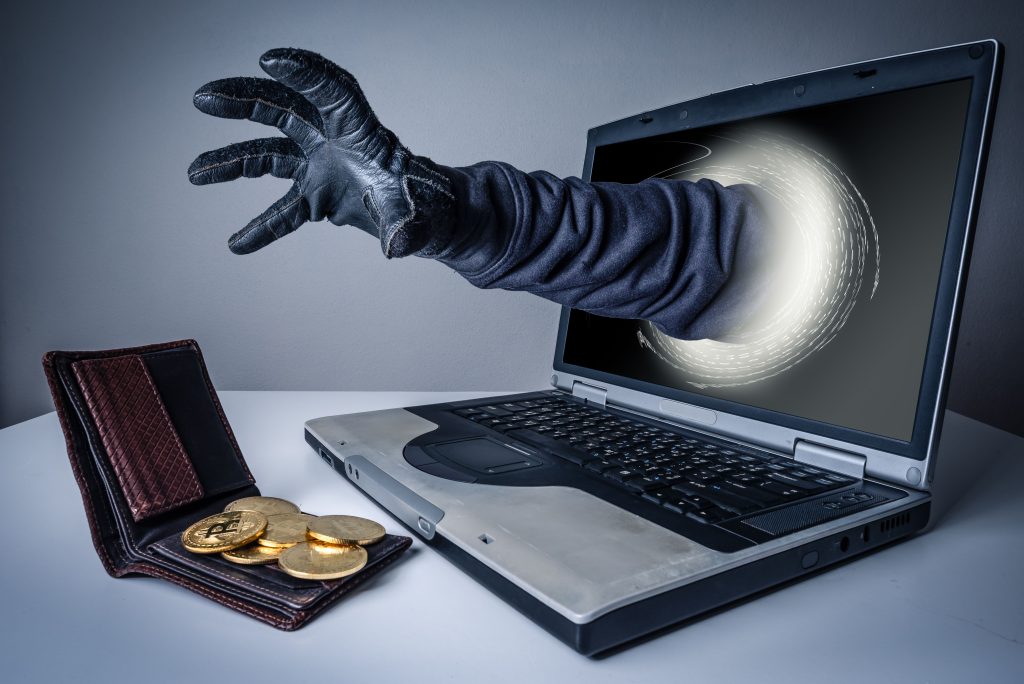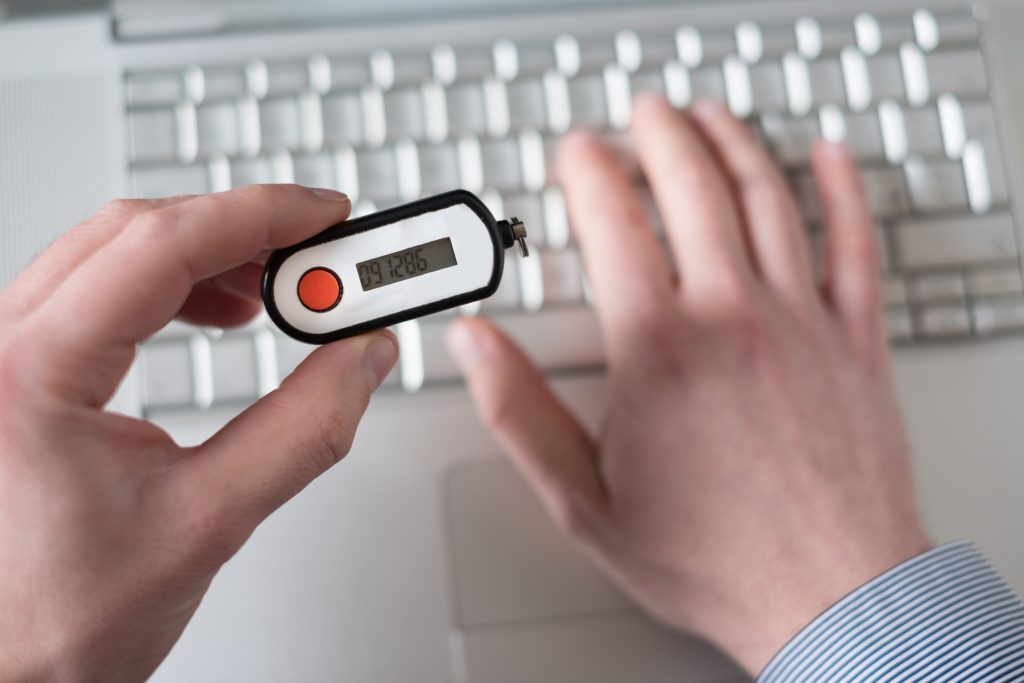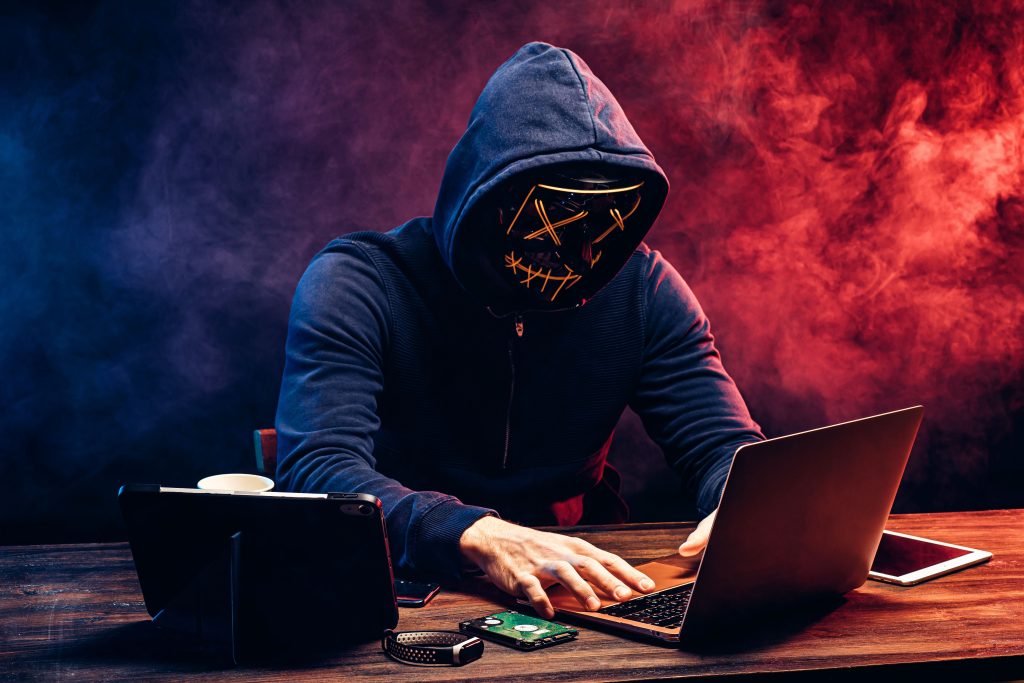As cryptocurrencies become increasingly popular, the number of people who start to see these digital assets as a way of investing and saving grows. Unfortunately, with this growing interest, the number of scammers trying to exploit the ignorance and gullibility of average cryptocurrency users also increases.
Cryptocurrency scams can take many forms and are often very sophisticated. It is worth getting to know the basic principles of caution and security measures to avoid risk and protect your savings.
Don’t believe in promises of high profits.
In the cryptocurrency market, you can encounter many companies and individuals promising quick and high returns. However, remember that investing in cryptocurrencies, like any other assets, involves risk. Avoid suspicious investment programs that offer unrealistic returns. Always do your own research and avoid making hasty decisions.
Don’t invest more than you can afford to lose. This is the basis of any investment but is especially important in the case of cryptocurrencies, which are very volatile and unpredictable. Don’t borrow money for investments, don’t sell your savings, and don’t neglect basic life needs. Invest only what you can afford to lose without severe consequences.
When deciding to invest – whether it’s in cryptocurrency, real estate, or stocks – you should pay attention to several crucial things. Below you will find a list of “red flags“ that should worry you:
- Guarantee of profit. Investments always involve risk. Any company that guarantees profit is most likely misleading you.
- Pressure for a quick decision. If you are pressured into making a quick investment decision, this is another warning sign. Opportunities that disappear overnight are rarely good investments.
- Ambiguities. If a company can’t provide you with specific information about where your funds are being invested, it’s a clear sign to be cautious.
- Anonymity. Investing in anonymous companies or individuals is risky. Always try to find out who is behind a given company or investment.
One of the most crucial actions before investing is conducting your own due diligence. Don’t rely solely on information provided by the company or individual offering the investment. Gather information from various sources to get a complete picture of the investment.
Criminals know your data
Are you aware that criminals might know your full name? Do you know that they might be aware of your online activity, for example, related to your cryptocurrency account? You should know that such information may come from the dark web.
The dark web is a part of the internet not indexed by traditional search engines. It is often used for illegal activities such as drug and weapon trading, and most importantly, personal data. It’s no secret that criminals use the dark web to obtain information that can be used for crimes like identity theft or scams.
Criminals can obtain your data in many ways. It is possible that your data was stolen during a security breach and then sold on the dark web. This could include information from cryptocurrency services, social media platforms, banks, online stores, and many other online services you use daily.
Don’t trust anyone who calls or writes to you about cryptocurrencies.
Scammers increasingly exploit our trust in known brands, influencers, or financial institutions to steal our savings. How to protect yourself?
The basic rule we should follow is healthy skepticism and caution. If someone calls you or writes via WhatsApp, Messenger, or another messenger, claiming to be an employee of a bank, financial institution, or cryptocurrency company – you are most likely dealing with a scam attempt. Scammers often use social engineering methods to extract user data.
Remember that financial institutions and cryptocurrency exchanges rarely contact you without prior notice and will never ask for full login details or private keys over the phone, email, or text. If someone asks you for this information – it’s a red flag that shouldn’t be ignored.
Another common scam involves persuading victims to install remote access software. They might suggest it’s part of technical support or a particular service. Remember: don’t install anything that seems suspicious or comes from unknown sources. Such actions can expose you to the loss of not only money from a bank account or cryptocurrencies but also personal data.
Always check if the person or institution you’re dealing with is genuine. If your interlocutor seems suspicious, verify their identity through independent sources. For example, if someone claims to be an employee of your bank, call the bank at the number provided on the official website to verify the identity of the caller.
Secure your bank account

Scammers often use various tactics to get us to share key information. So remember – your login details are intended only for you. Financial institutions, banks, and also cryptocurrency companies should never ask you for these details.
Also, remember to set small transaction limits. When using cryptocurrency exchanges, setting small transaction limits is an excellent way to reduce the risk of potential losses. If your account is hacked or compromised, the loss will automatically be minimized.
Here are a few more practices that will help you secure your bank account:
- Enable two-factor authentication. It’s an extra layer of security that requires two different verification methods from you before you can access your account.
- Regularly update your passwords. Change the passwords to your bank account at least once every three months. Avoid repeating passwords and create strong passwords that are hard to guess.
- Only use official apps and websites. Always use the official banking app or website when conducting transactions. Avoid websites and apps that look suspicious or are offered by unknown sources.
Do not store cryptocurrencies on exchanges.
At first glance, cryptocurrency exchanges might seem like an attractive place to store cryptocurrencies. They are easily accessible, centralized platforms where users can easily and conveniently buy, sell, and store cryptocurrencies. However, this ease and convenience might cost you a lot if the exchange faces problems.
One of the biggest threats to cryptocurrency exchanges are hacker attacks. In the past, there have been cases where exchanges were hacked and lost millions of dollars in client cryptocurrencies. Even though exchanges take care of their security, hackers are always looking for new ways to bypass these defenses. Even the most advanced security measures cannot completely eliminate the risk of losing cryptocurrencies.
Another risk associated with storing cryptocurrencies on exchanges is mismanagement. Cryptocurrency exchanges are typically run by private companies, which can face financial problems, ownership changes, or management decisions, all of which can impact the security of your cryptocurrencies. Furthermore, the law regarding cryptocurrencies is still unclear or incomplete in many places, which further increases the risk.
There’s a saying: “You don’t own cryptocurrencies if you don’t manage your private keys yourself.“ This means that true control over your cryptocurrencies is only possible when you have the private keys to your wallet. A private key is a long string of numbers that acts like a password to your funds. It’s important to store private keys offline, preferably on a secure device like a hardware cryptocurrency wallet. When choosing a wallet, you can refer to our guide:
Secure your cryptocurrency wallet.

It may sound strange, but the truth is, you can’t have bitcoins in a physical sense. Bitcoin is just a record in the blockchain, which is distributed across many computers worldwide. So, there’s no such thing as a Bitcoin coin or banknote. You can only have a private key that allows spending bitcoins from a particular address. A private key is a string of characters that should be kept in a safe place, e.g., on a special device called a hardware wallet, or on paper. If someone loses or reveals their private key, they also lose access to their bitcoins.
Private keys can be stored on paper or metal, in a secure place like a safe. Known as “paper wallets“, they are resistant to hacker attacks but require appropriate protection against damage or theft.
You can also use wallets that offer multi-level securities, like multisig (requiring multiple signatures to approve a transaction) or time-locks (locking funds until a specific moment).
During transactions, it’s essential to make sure the recipient’s address is correct. There are malicious software programs that change the copied address when pasting it. A good practice is always to check at least the first and last few characters of the address.
In conclusion, the security of a cryptocurrency wallet is key to protecting your investments. Using a cryptocurrency wallet instead of an exchange, securing private keys, storing keys offline, and regularly creating backups are just some of the steps you can take to protect your cryptocurrencies. Remember that regardless of the method chosen, the security of your cryptocurrencies always remains your responsibility.
